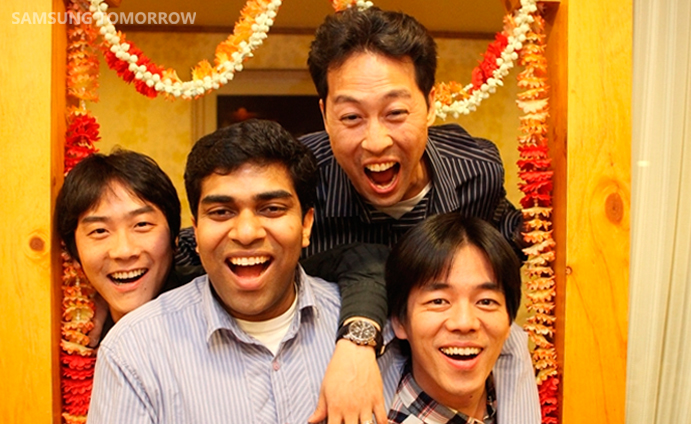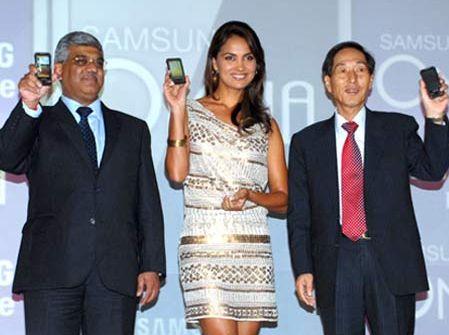From exporting dried Korean fish to China in 1938 to threatening iPhone’s dominance in the smartphones market in 2011, Samsung has built a global presence by keeping with times.
To do that, the management of a global company needs to be able to spot trends early and respond quickly.

South Korea’s consumer electronics brand seems to have spotted the wind of change early and has shown aberrance from its policy of sticking to local talent.
The leadership at Samsung Electronics Co. is probably influenced by Indians’ reputation as software geeks, as the company began hiring aggressively in India. According to a media report, “hundreds of Indians” are now working on software development at Samsung’s headquarters in Suwon.
“The company now serves curry and Halal meat in its cafeteria,” says a Wall Street Journal report. Samsung already has two research and development centres in India.
There are many qualified workers from India that are very skilled in software, says J.K. Shin, Samsung’s president for mobile business, in a media interview. “And there are small companies that we can acquire that have good research and development capabilities.”
Shin’s decisions have a strong bearing on the company’s future – his division earned 75% of Samsung’s $4.5 billion profit in this year’s first quarter alone.
Shin better be right. Samsung displaced Nokia to become the largest mobile-manufacturer (by volume) in the first quarter. In the 1990s, the name Nokia was synonymous with mobile phones, and the Finnish company had as much as 93% share of the mobile market in the world at one stage.
Samsung is in a position where its every move can become a trend, or at least an indication of a trend. Â Samsung’s decision to hire from India – a hub of software development, underlines the role of software over hardware in writing the future of the mobile market. Apple’s dominance is based on its iOS operating system; Nokia has tied up with Microsoft for Windows Phone software; Research in Motion is also launching its new operating system – BlackBerry 10.
Samsung initially tried developing its own software, called Bada, which did not get a good reception from mobile users. Samsung then did the next best thing which probably saved it from meeting the fate of Nokia – it introduced phones that run on the popular Android platform built by Android Inc. (Google bought Android Inc in 2005.)
With the help of Indian talent, Samsung intends to re-visit Bada while continuing to develop other operating systems. This seems to be a logical move, while still working with Android.
“Samsung could benefit from some in-house software capability that would give it greater control of hardware, software and services but executing on that is becoming increasingly difficult on its own,” Neil Mawston, executive director at market research firm Strategy Analytics, was quoted in the Wall Street Journal.


Leave a Reply to shay Cancel reply